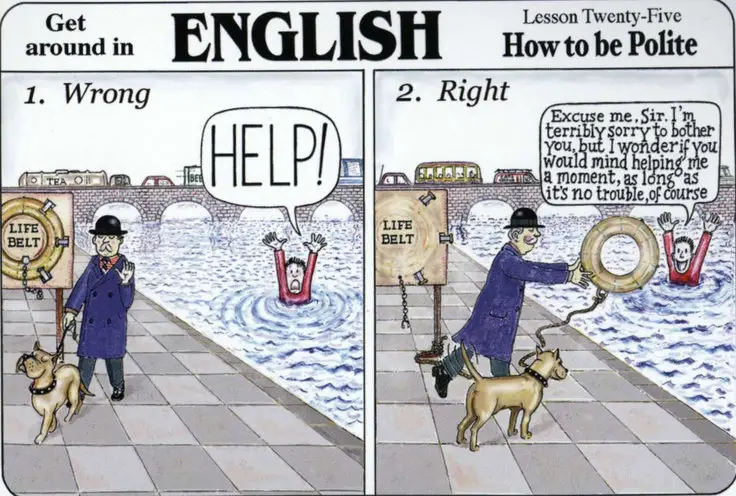And boy was he right.
 |
| This is one of those situations in which you shouldn't have to be polite. |
Surely you recognize this case study with friends at a restaurant:
One of them (let's call her Julie) realizes she forgot her wallet, so the others offer to buy her dinner. She says sweetly, "Oh, no, you guys don't have to do that!" The others insist, but so does she. She doesn't want to impose. Dear Julie has been taught to be polite...even to a fault. So she utterly refuses. She smiles and laughs over your sweet pork quesadillas and chicken salads as you all sit at the table, content to use her place for extra napkins and crinkled straw covers. On the ride home, though, her stomach growls loudly, and nobody says a word.
Sure, it was nice of Julie to consider the pocketbooks of her companions, but there comes a point when everyone would just feel better if you weren't so polite. (Especially the kid in the backseat whose bulging coin purse was burning a hole through his back pocket.) Doesn't that border on impoliteness, even--refusing to accept the politeness of others?
Yet we can't give up politeness all together, even if it is "a poor man's virtue," as Diane Setterfield once said. What if Julie had instead demanded that someone buy her dinner? What if that someone was you, and you remembered that you were a poor college student whose wallet contained your last twenty bucks until next paycheck? I guess you could have done away with all politeness, too, and refused to pay for Julie's dinner. But that wouldn't have solved anything.
So the real question must be, then, where are the bounds of virtue? How can we know where they are? If we can't let our politeness, generosity, cleanliness, go as far as possible, then...where should be stop them?

You make an interesting argument about politeness. I suppose there certainly are times when it is necessary to forego pleasantries. Look to Martin Luther, what if he had just politely said "Mr. Pope, I think we are doing a few things wrong, but I don't want to intrude on your authority or anything." When society is revolutionizing, those pleasantries have a place, but must not overshadow the message.
ReplyDeleteThat's a very interesting point you make. There are many times when there is the need to be polite and considerate of others while also being aware of the situation. Perhaps practicality is what's needed in these types of circumstances. When we see others in need we naturally offer our help, but if they refuse we are to be persistent in offering our assistance. However, when one simply refuses just to refuse I feel it's better just to let them be and respect their decisions.
ReplyDelete